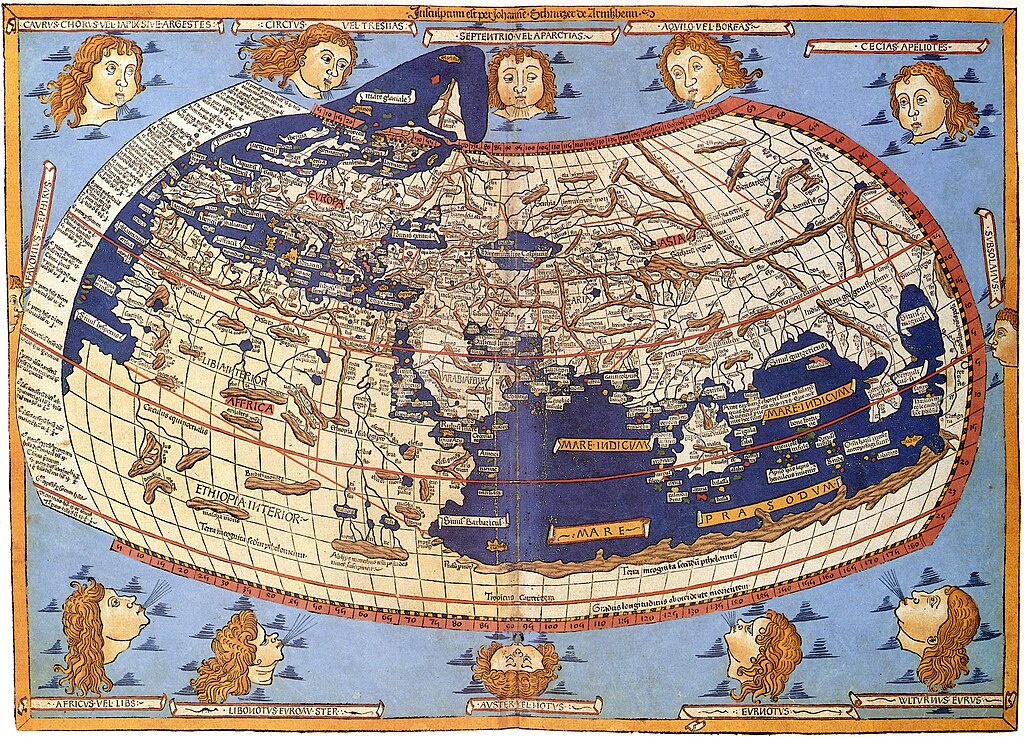
In this episode, Whitney Kay, Merit Wagstaff, and Abby Pruns tackle the myth that when Christopher Columbus sailed the ocean blue in 1492, he and his crew—and everyone else in Europe at the time—believed the earth was flat.
Sources Cited in this Episode
Cohen, Richard. Making History: The Storytellers Who Shaped the Past. Simon & Schuster, June 22, 2021.
Columbus, Christopher, and Clements Marham. The Journal of Christopher Columbus (during his First Voyage, 1492-93) and Documents Relating the Voyages of John Cabot and Gaspar Corte Real. The Hakluyt Society, 1893.
Irving, Washington. The Life and Voyages of Christopher Columbus. G. & C. Carvill, 1828.
Las Casas, Bartolomé de, and Christopher Columbus. Personal Narrative of the First Voyage of Columbus to America: From a Manuscript Recently Discovered in Spain. T.B. Wait and Son, 1827.
Numbers, Ronald. Galileo Goes to Jail and Other Myths about Science and Religion. Harvard University Press, 2009.
Schotte, Margaret. Sailing School: Navigating Science and Skill, 1550-1800. John Hopkins University Press, July 30, 2019.
Further Reading
Classen, Albrecht. The Medieval Chastity Belt: A Myth-Making Process. Palgrave Macmillan, 2007.
Cohen, Richard. Making History: The Storytellers Who Shaped the Past. Simon & Schuster, 2021.
Hanke, Lewis. Bartolomé de las Casas and the Spanish Empire in America: Four Centuries of Misunderstanding. The American Philosophical Society, 1953.
Stokes, Claudia. Old Style: Unoriginality and Its Uses in Nineteenth-Century United States Literature. De Gruyter, December 2021.
Vickery, Paul. “Bartolomé de las Casas: Prophet of the New World.” Mediterranean Studies, May 1999.
Meet Our Guest
Dr. Matthew Montgomery is an Assistant Professor in the Department of Political Science at Texas Christian University (TCU), where he has been a faculty member since 2021. He earned his Ph.D. in Political Science from Georgia State University in 2021, following his M.A. from the same institution and a B.A. from Georgia Gwinnett College. Dr. Montgomery’s research focuses on American political institutions, particularly the interactions between the executive and judicial branches. Dr. Montgomery’s commitment to teaching and research contributes significantly to the academic community at TCU, reflecting the university’s emphasis on excellence in education and scholarship.

Whitney Kay
Whitney is a sophomore from Danville, California, studying Strategic Communication and Political Science.

Merit Wagstaff
Merit is a junior from Akron, Ohio, studying Strategic Communication and Political Science.
Abby Pruns
Abby is a recently graduated alumna of TCU, with a degree in Business Administration Marketing.